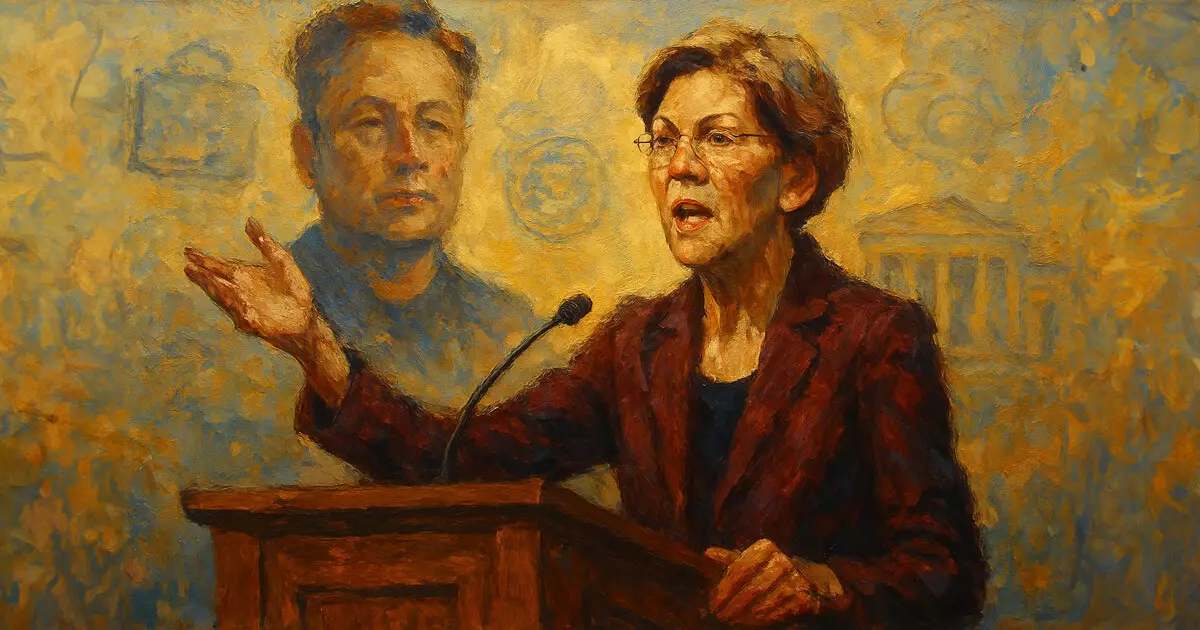In an age where trust in government institutions is perpetually waning, the introduction of the Special Government Employee Ethics Enforcement and Reform (SEER) Act is a critical development that demands our attention. Spearheaded by Senator Elizabeth Warren, this bill aims to close the ethics gaps surrounding Special Government Employees (SGEs), like Elon Musk and David Sacks, who straddle the line between private interests and public service. What stands out is that these advisors are allowed significant leeway—up to 130 days a year—without the same disclosure obligations that full-time officials face. The need for reform can no longer be understated, especially when the ramifications of such leniency can translate into unchecked influence by powerful individuals.
Money Talks: The Ethics of Influence
One of the most alarming aspects of the current framework is how it permits high-profile billionaires to benefit from governmental contracts while maintaining inadequate transparency regarding their financial interests. Senator Warren rightly points out that someone like Musk, who enjoys lucrative government deals, escapes crucial disclosures that even mid-level bureaucrats must adhere to. This creates a system ripe for conflicts of interest and raises urgent questions about accountability. If companies controlled by these SGEs receive federal contracts, how can we trust their advisory input when they have a vested interest in the outcome? The SEER Act poses a legitimate challenge to this ethical grey area, compelling us to consider whether it’s appropriate for corporate leaders to play a role in shaping policies that directly benefit their bottom line.
A Coalition of Accountability
Resonating with a diverse spectrum of advocacy groups—including Public Citizen and the American Federation of Government Employees—the SEER Act garners broad support. This collective response demonstrates a burgeoning recognition among various sectors that insular government practices threaten democracy itself. The call for expanded ethics rules to encompass SGEs from their 61st day in office is a necessary step. After all, public trust is contingent on the belief that those who advise the government are not wielding their influence for personal gain. The establishment of stricter conflict-of-interest protocols is not merely desirable but essential for embedding accountability into institutions that shape the fabric of our society.
Transparency as a Tool for Reform
One of the standout provisions of the SEER Act is the push for transparency through public access to conflict-of-interest waivers and financial disclosures. By empowering the Office of Government Ethics to oversee these waivers, citizens can engage with the realities of who shapes their government policy. This mechanism could lead to a more informed electorate, genuinely holding leaders accountable—not just in terms of regulations but in both the public and private sectors they inhabit. The creation of a public database to track the activities and time served by SGEs is not just administrative overhead but a foundational pillar toward rebuilding trust in governmental structures.
The Time for Action is Now
In a political landscape often riddled with cynicism, the SEER Act emerges as a beacon of hope for heightened ethical standards. With the power to reshape how advisory roles intersect with private interests, the bill challenges the status quo and seeks to ensure that public service is safeguarded against the encroachments of corporate influence. This isn’t merely a legislative tweak; it’s a necessary recalibration of our ethical compass. For a government to function effectively, it must prioritize transparency and accountability—not just as abstract ideals but as practical, actionable mandates that foster public trust. The stakes have never been higher, and the SEER Act could potentially redefine how we perceive the intertwining of ethics, governance, and corporate power.


Leave a Reply